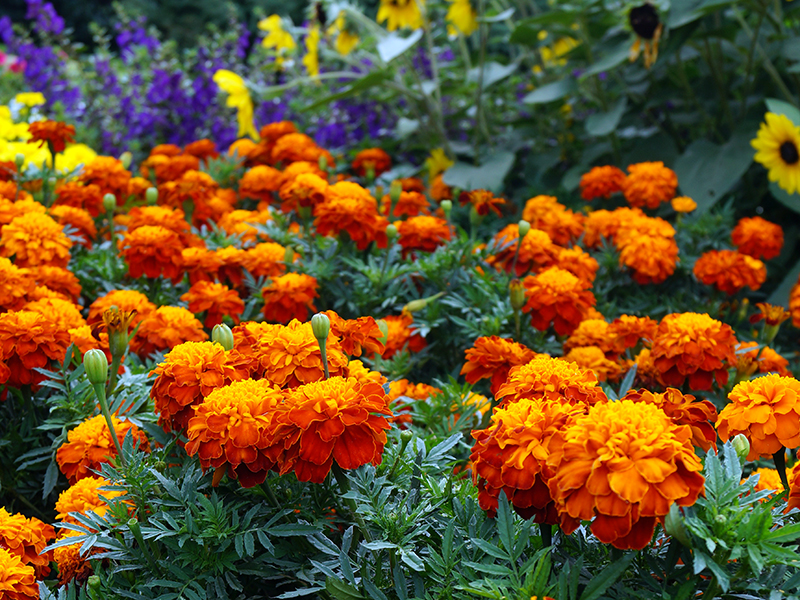My wife and I were behind in getting our flower boxes going this year. She insisted that we buy some marigolds from the garden store; I (in my everlasting cheapness) wanted to use the seeds that I had saved from last year’s marigolds. She pointed out that when we tried to use seeds in the flower boxes and pots last year, they not only took a long time to grow, but also remained quite small all year. She was right, of course. We bought some marigolds already growing from the garden store.
In today’s readings, we see that God doesn’t go to the garden store to get some already-started plants. This isn’t because He is cheap. So what does it reveal? We might consider what the analogy of already-started plants would be. In this case, it might be the scribes and Pharisees, the ones who are already developed in studying God’s word. Or it might be the wise of the world, who are genuinely seeking wisdom. And of course, God does call everyone to the Kingdom.
But not based on our already-established merit. That is key. The troubling words of Jesus about speaking in parables so that some may “hear and not understand” should be understood in terms fundamentally in terms of one’s openness and receptivity. The problem is not wisdom or even study of God’s law. The problem is a sense of self-sufficiency. The problem is congratulating ourselves on our solid foundations.
By contrast, what Jesus is seeking is hearts open to God. The metaphor of the soil is an important one here; the soil receives the seed, the seed is the active principle. The first reading from Isaiah urges us to trust the efficacy of God’s word – in exile, it is easy for the Israelites to doubt this.
Yet today’s parable ultimately reveals not a dominating God who seeks absolute submission. The typically agrarian character of the parable pushes considerable responsibility back on us. The seed’s success and flourishing is anything but inevitable. God is not about growing hothouse plants in rigid conditions. It turns out the soil makes all the difference. One might particularly be struck by the image of the seed sown among many thorns, which Jesus identifies with “worldly anxiety and the lure of riches.” One thinks about the related images of the lilies of the field in the Sermon on the Mount, where anxiety about worldly things is also criticized. For those of us who live in developed societies in the age of the Internet, we are certainly always in danger of having God’s seeds choked off. Are we tending our soil? Are we pulling out the weeds of even “spiritual worldliness,” against which Pope Francis warns vividly in Evangelii Gaudium?
The seed is an image that puts the active starting point of growth in God’s hands. But it is also an image that shows how much God relies on us to tend and nurture that starting point, so that it yields an abundant harvest. And of course generates more seeds! It’s really rather amazing how many seeds one can get from last year’s marigold plants, even when they weren’t champion growers. But the key is ultimately the soil. Our marigolds didn’t do that great last summer because we planted them in shallow, depleted soil; when they were exposed to the hot sun of the summer, they didn’t have the roots reaching into damp soil to sustain their growth. Turns out the same thing can happen to the already-started store-bought marigolds, as we have seen. It’s all about the soil. For the marigolds, we can go buy some new soil at the store. But for our hearts, we have to enrich the soil the old-fashioned way. One can imagine a parable about the Kingdom being like a compost pile…




